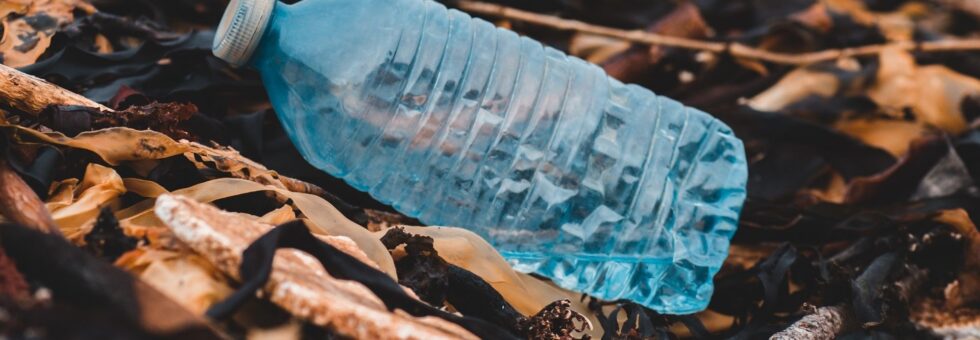You’ve probably heard about hemp plastic. But perhaps you’re not really familiar about what it is, how it’s made, and how it’s a better (and eco-friendly) alternative to regular plastic. In this article, we’re going to explain why the future of all plastics is hemp.
What is Hemp?
“Hemp is actually in the group of sustainable plastics known as bioplastics. This means that it can replace traditional plastics which have proven to be detrimental for the environment.”
Casper Ohm, Founder & Editor of Water-Pollution
We already have an All About Hemp article where we take a deeper dive into the specifics of the plant. The short answer to what it is: it’s a plant and a member of the cannabis family. It can be used to extract CBD and to create all sort of products, including, rope, textiles, paper, hempcrete, superfoods, and of course, plastics.
Do We Really Need An Alternative To Plastic?
“With a world that is setting expanding limits on plastic waste disposal and the biodegradation of plastics becoming more and more important in the future. It’s necessary that we start using alternative ways of creating plastics. Hemp is now being perceived as one of the best contrasting options to traditional plastics – this is courtesy of its lightweight nature, degradation time, and helps reduce CO2.”
Casper Ohm, Founder & Editor of Water-Pollution
Yes. Yes, we do. As if the reality check the environmental crisis we’re experiencing today wasn’t enough to open our eyes, here are a couple of facts about “regular” plastic and how it plays a leading role polluting Earth:
- Plastic takes 1,000 years to decompose in landfills.
- 355 million tons of plastic are produced globally each year.
- 45% of all plastic is produced in the United States.
- Beach litter is 40-60% plastic, most of which ends up floating in the sea, becoming a potential hazard for birds, fish and marine animals.
- Over 8 million tons of plastic waste are dumped into the world’s seas and oceans each year
And not only is the mass plastic production and i’s insane decomposing process a problem. According to the Hemp Plastic Company, “modern plastics are becoming harder to recycle.” To top off the cherry in the global warming sundae, it is more complicated to successfully recycle today’s plastic.
What’s The Difference Between Hemp And Plastic?
“Regular plastic material comes from crude oil and fossil fuel-based sources. Hemp biocomposite can be made into a plastic material. Many auto manufacturers in Europe, including Mercedes Benz and BMW, make door panels and dashboards from hemp.”
Dr. Stuart Titus, CEO of Medical Marijuana, Inc
Plastic comes from crude oil. Hemp comes from a plant. Hemp is degradable, plastic is not. Hemp can be recycled indefinitely, while plastic is becoming more and more difficult to recycle. And to top it off, plastic takes 1,000 years to decompose. Hemp takes only around 6 months.
Hemp Plastic, A Biodegradable Approach
“Hemp is actually in the group of sustainable plastics known as bioplastics. This means that it can replace traditional plastics which have proven to be detrimental for the environment.”
Casper Ohm, Founder & Editor of Water-Pollution
Casper Ohm, Founder & Editor of Water-Pollution
Hemp is a clean, ecological, sustainable, and renewable alternative. This bioplastic material is actually stronger than plastic, and it degrades completely between 3 and 6 months. That’s around 90 to 180 days. Also, it can be recycled indefinitely.
Hemp Plastic Advantages
- It’s biodegradable
- It’s non-toxic
- It’s a renewable resource
- It prevents soil erosion
- It can be recycled indefinitely
- It’s a stronger and lighter material than regular plastic
Let’s talk a little bit about each of these advantages.
It’s biodegradable
“Hemp for plastic makes great sense for our environment, as hemp plastic material, when placed in landfills, will actually biodegrade into useful and beneficial compounds that nurture the soil.”
Dr. Stuart Titus, CEO of Medical Marijuana, Inc.
Hemp not only degrades in a matter of months. It also helps bring beneficial compounds that help nurture the soil.
It’s non-toxic
With hemp, there are no BPAs included nor any carbon dioxide emissions when it’s decomposing.
It’s a renewable resource
“Sustainable, renewable hemp provides a far better solution versus current oil-based practices in the plastics industry. As soon as we have enough hemp supply and production facilities here in the US as they do in Europe, this will create a major shift toward environmentally-friendly plastics. Other uses for hemp include clean-burning biofuels as hemp biomass can be utilized for clean-burning Ethanol and Methanol production at present. Other near-term uses are for building and construction materials, insulation, textiles, and the newly emerging concept of hemp batteries and super-capacitors.”
Dr. Stuart Titus, CEO of Medical Marijuana, Inc.
It prevents soil erosion
“The hemp crop can be cultivated time and time again, and actually benefits the soil it is planted on. This is due to the absorption properties of hemp, which help reduce pollution within the soil. On top of all of this, hemp plastic requires less energy to produce the same amount of plastic, lowering production costs and reducing pollution in the process. Hemp plastic is certainly a promising candidate to replace traditional plastics as a more eco-friendly approach, and could be the long-term solution the world needs in the near future.”
Garrett Greller, Co-Founder of Uncle Bud’s Hemp
There you have it. It benefits the soil, making it the most eco-friendly approach out there.
It can be recycled indefinitely
This one pretty much explains itself. It. Can. Be. Recycled. INDEFINITELY.
It’s a stronger and lighter material than regular plastic
“Hemp plastic is 3.5 times stronger and 5 times stiffer. The decomposition of hemp takes only 3 months while regular plastic decomposition may take 1000 years.”
Dr. Waqas Ahmad, Family Medicine Physician & Head of the Medical Advisory Board of Insurecast
A stronger, lighter material that degrades in months and that also helps take care of the Earth? Sign us up.
To summarize…
“Hemp is durable and stiffer. It is the most efficient crop and grows abundantly. It is eco friendly. They are biodegradable, recyclable, and lightweight. It decomposes itself within 3 months. It is capable of absorbing up to four times as much carbon dioxide as trees during its 12 to 14-week growth cycle to reduce carbon dioxide emissions. It is non-toxic.”
Dr. Waqas Ahmad, Family Medicine Physician & Head of the Medical Advisory Board of Insurecast
Hemp – 1, Plastic – 0.
Conclusion
“Personally, I believe that hemp IS the future of plastics. It is actually the only plastic that is 100% biodegradable in nature. The hemp plant itself also consumes 4x more carbon dioxide than other plants from the atmosphere.”
Casper Ohm, Founder & Editor of Water-Pollution
And we have to agree. Hemp is durable, eco-friendly, renewable, and all around the best option when it comes to replacing plastic. It is, without a doubt, the future. If you want to learn more about hemp, its uses & benefits, our industrial Hemp & CBD course is exactly what you need! In this program, you’ll learn the history of cannabis, get an introduction to horticulture, and comprehensive studies of both industrial hemp and CBD. Learn more about our courses, programs and certifications here!

